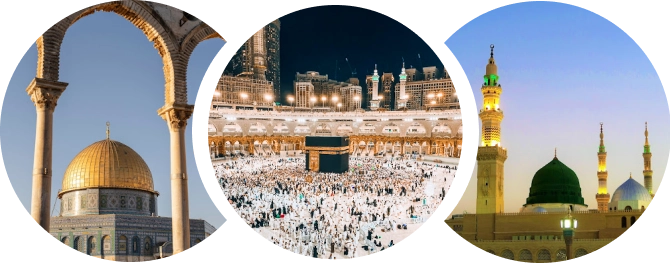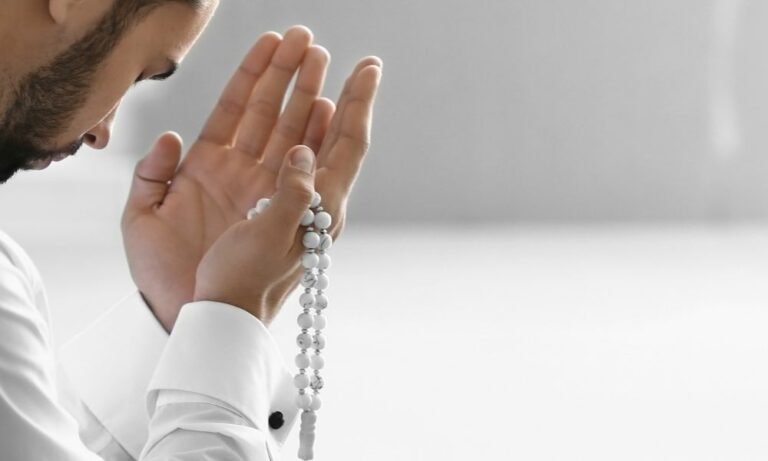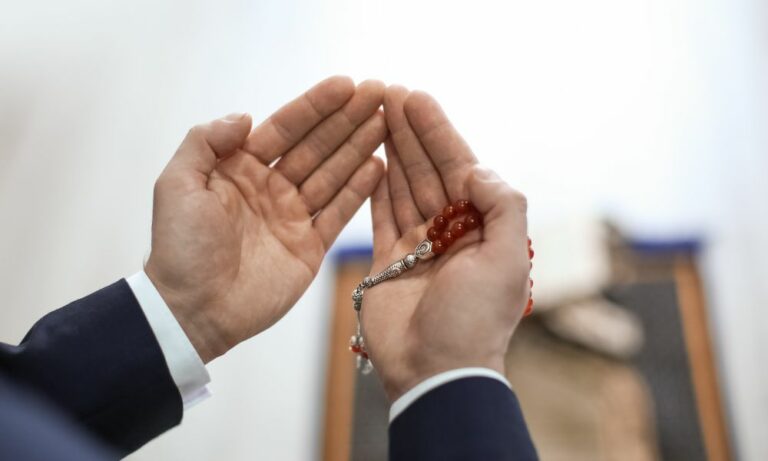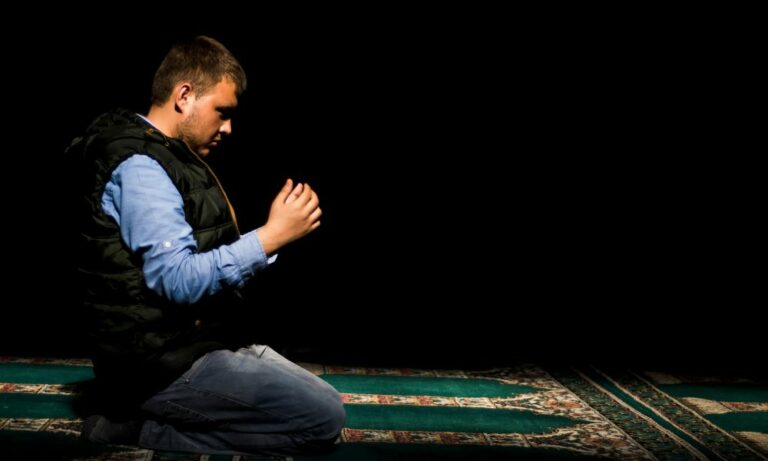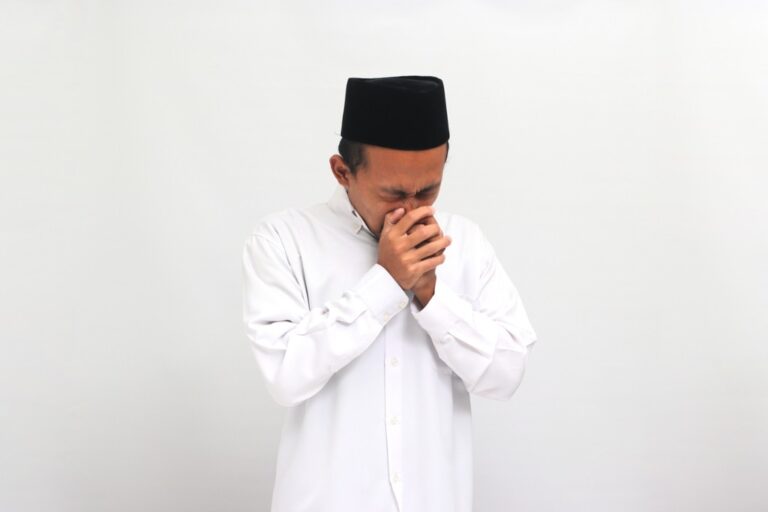Dua After Adhan (Azan) and Its Benefits
Adhan, the Islamic call to prayer, has been echoing across our mosques and homes five times daily. Yet, many of us may not know that its resonance does more than just invite us to salat; it opens up an auspicious window of time when Allah SWT readily accepts supplications.
This blog aims to help you explore these untapped blessings by comprehending the importance of Dua after Adhan in Islam and revealing how this practice can enrich your spiritual journey.
Understanding the Adhan


The melodious sounds of “Allahu Akbar” echo in cities and towns across Muslim-majority countries from dawn to dusk.
Each phrase of this sacred proclamation contains profound meaning that reflects fundamental Islamic principles: testimony of faith (shahada), affirmation of prophethood (risala), and recognition that salvation is found in worship (ibadat).
This form of divine calling signifies the time for obligatory prayers (Salat) as directed in Surah Al Isra from the Holy Quran. Originating during Prophet Muhammad’s time through his companions Bilal and Abdullah Bin Zaid R.A., the Adhan attests to Allah SWT being the Creator of the universe and Prophet Muhammad PBUH being His last messenger.
The Muezzin or Muadhin initiates it from a mosque minaret.
The Importance of Adhan in Islam
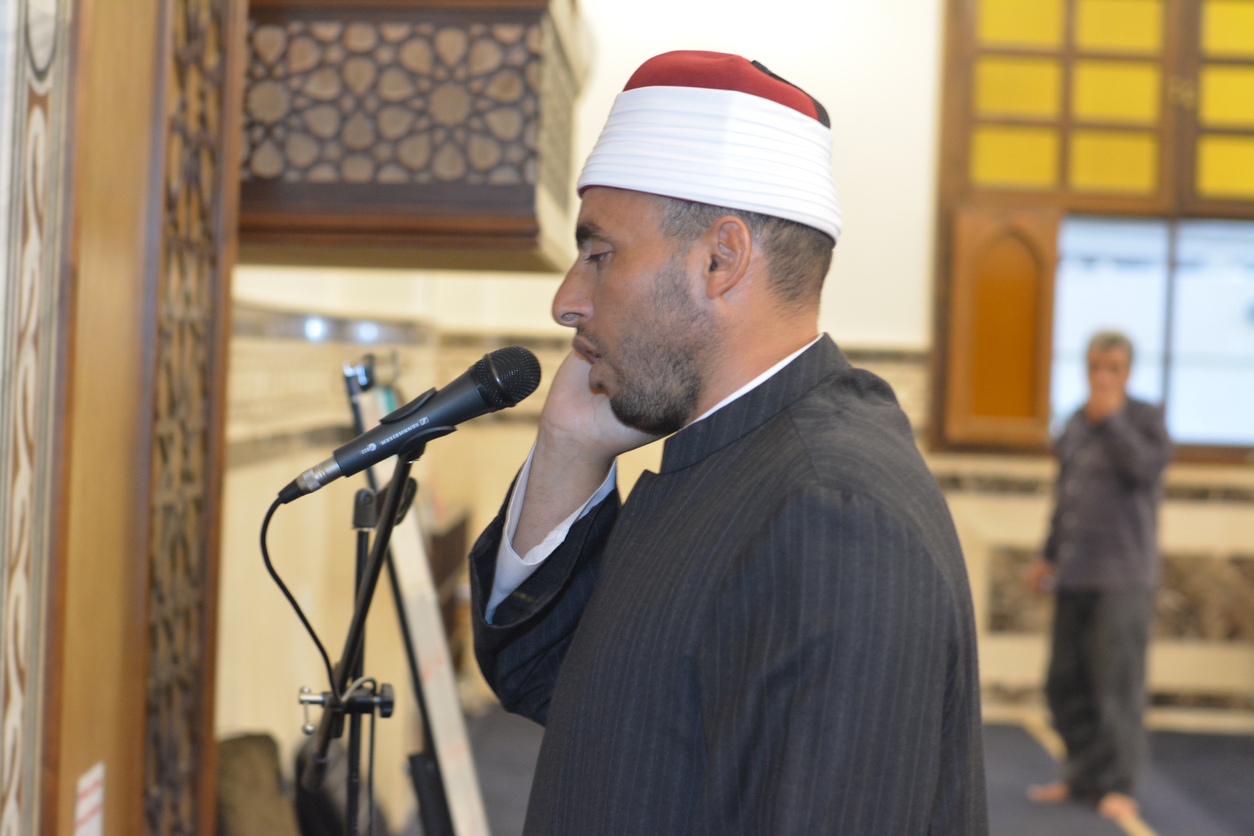

The Adhan is an integral part of every Muslim’s daily life. The call to prayer can be heard five times daily in cities and villages worldwide. This reminds us of our responsibility to Allah SWT.
Through its unified Arabic phrases, it connects Muslims worldwide, regardless of native language or cultural differences. It is echoed by powerful expressions such as “Allahu Akbar” and “La ilaha illa Allah,” indicating God’s greatness and declaring that there is no deity other than Him.
Furthermore, it prepares believers to detach from worldly concerns by directing them toward devotional activities such as Salat – an obligatory Islamic practice that strengthens one’s spiritual bond with Allah SWT.
Following this divine call by echoing the Muezzin’s words is also considered an act of worship, adding blessings to your day.
According to various Hadiths by Prophet Muhammad PBUH, reciting Dua after hearing Adhan has numerous benefits, such as seeking forgiveness from Allah SWT and requesting ease on the Day of Judgment; it enhances spirituality while substantially strengthening our belief system.
Etiquettes While Listening to Adhan
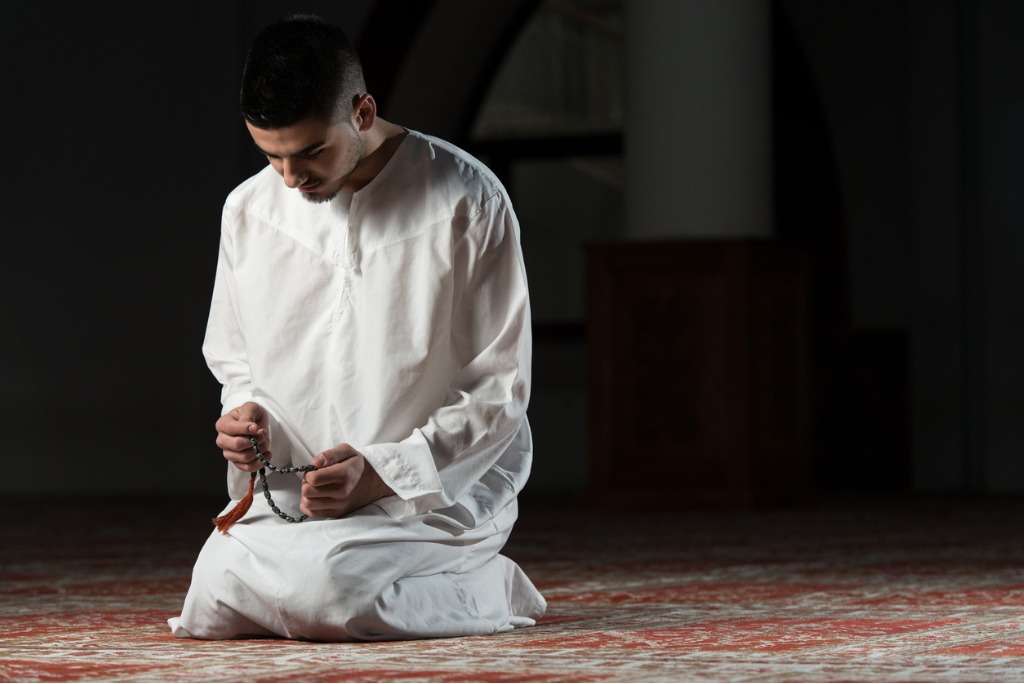

When listening to the Adhan, it is essential to be respectful and mindful by echoing the Muezzin’s words and avoiding distractions. To learn more about the etiquette of listening to the Adhan, read on.
Replying to the Adhan by echoing the Muezzin
Prophet Muhammad PBUH has ordered us to repeat the phrases of Adhan after Muezzin.
“ إِذَا سَمِعْتُمُ النِّدَاءَ فَقُولُوا مِثْلَ مَا يَقُولُ الْمُؤَذِّنُ ” .
When you hear the Adhan, you should repeat the exact words as the mu’adhdhin pronounces. Sunan Abi Dawud 522
In another hadith, Prophet Muhammad PBUH said that you should reply to “Hayya A’las Salah” and “Hayya A’lal Falah” with “La Hawla Wala Quwwata Illa Billah,” meaning “There is no might and no power except with Allah SWT,”
Below is the simple cheat sheet you can follow when replying to Muezzin:
Allahu Akbar, Allahu Akbar => Reply: Allahu Akbar, Allahu Akbar
Ashhadu Allah Ilaha IllAllah => Reply: Ashhadu Allah Ilaha IllAllah
Ashhadu Anna Muhammadan Rasulullah => Reply: Ashhadu Anna Muhammadan Rasulullah
Hayya A’las Salah => Reply: La Hawla Wala Quwwata Illa Billah
Hayya A’lal Falah => Reply: La Hawla Wala Quwwata Illa Billah
Assalatu Khairum Minannawm => Reply: Sadaqta Wa Barakt (Only in fajr)
Allahu Akbar, Allahu Akbar => Reply: Allahu Akbar, Allahu Akbar
La Ilaha Illa Allah => Reply: La Ilaha Illa Allah.
Note: The number of times the above phrases are repeated are different in the actual Adhan. Just follow the Muezzin, and you will be fine InshAllah.
Being Mindful and Respectful
Being mindful and respectful during the Adhan is essential to Islamic practice. It entails removing distractions, thoughtfully responding to the call to prayer, and appreciating its significance.
Reciting a sincere Dua and sending Salawat upon the Prophet are examples of demonstrating such respect. With phrases like “Allahu Akbar” and “La ilaha illa Allah,” the words of the Adhan also convey profound spiritual meaning.
The Ritual of Dua After Adhan (Important)


Prophet Muhammad PBUH has described to us the rituals after Adhan in a hadith, which Abdullah bin Amr bin Al As reported:
“When you hear the Mu’adhdhin, repeat what he says, then invoke a blessing on me, for everyone who invokes a blessing on me will receive ten blessings from Allah; then beg from Allah al-Wasila for me, which is a rank in Paradise fitting for only one of Allah’s servants, and I hope that I may be that one. If anyone who asks that I be given the Wasila, he will be assured of my intercession.” Sahih Muslim 384
From this hadith, the first step is to send blessings upon Prophet Muhammad PBUH. But how do we send blessings on the Prophet Muhammad PBUH? Here is the answer:
اللَّهُمَّ صَلِّ عَلَى مُحَمَّدٍ، وَعَلَى آلِ مُحَمَّدٍ، كَمَا صَلَّيْتَ عَلَى إِبْرَاهِيمَ وَعَلَى آلِ إِبْرَاهِيمَ، إِنَّكَ حَمِيدٌ مَجِيدٌ، اللَّهُمَّ بَارِكْ عَلَى مُحَمَّدٍ، وَعَلَى آلِ مُحَمَّدٍ، كَمَا بَارَكْتَ عَلَى إِبْرَاهِيمَ، وَعَلَى آلِ إِبْرَاهِيمَ، إِنَّكَ حَمِيدٌ مَجِيدٌ ”
Allāhumma ṣalli ʿalā Muḥammadin, wa ʿalā āli Muḥammadin, kamā ṣallayta ʿalā ibrāhīma wa ʿalā āli ibrāhīma, innaka ḥamīdun majīdun, Allāhumma bārik ʿalā Muḥammadin, wa ʿalā āli Muḥammadin, kamā bārakta ʿalā ibrāhīma, wa ʿalā āli ibrāhīma, innaka ḥamīdun majeed ”
“O Allah! Send Your Mercy on Muhammad and on the family of Muhammad, as You sent Your Mercy on Abraham and on the family of Abraham, for You are the Most Praise-worthy, the Most Glorious. O Allah! Send Your Blessings on Muhammad and the family of Muhammad, as You sent your Blessings on Abraham and on the family of Abraham, for You are the Most Praise-worthy, the Most Glorious.’” Sahih al-Bukhari 3370
The next step is to ask Wasila for Prophet Muhammad PBUH. How can we do that? The answer is in the following Hadith:
اللَّهُمَّ رَبَّ هَذِهِ الدَّعْوَةِ التَّامَّةِ وَالصَّلاَةِ الْقَائِمَةِ آتِ مُحَمَّدًا الْوَسِيلَةَ وَالْفَضِيلَةَ وَابْعَثْهُ مَقَامًا مَحْمُودًا الَّذِي وَعَدْتَهُ
‘Allahumma Rabba hadhihi-dda` watit-tammah, was-salatil qa’imah, ati Muhammadan al-wasilata wal-fadilah, wa b`ath-hu maqaman mahmudan-il-ladhi wa`adtahu’
“O Allah! Lord of this perfect call (perfect by not ascribing partners to You) and of the regular prayer which is going to be established, give Muhammad the right of intercession and illustriousness, and resurrect him to the best and the highest place in Paradise that You promised him (of)” Sahih al-Bukhari 614
Reciting this Dua carries great benefits for all of us, which we will discuss in the next section.
How to Recite the Dua in Arabic
For non-native speakers, especially those who are new Muslims, it’s pretty challenging to recite these Arabic phrases. That’s why, to make things easier for you, we will attach a video so you can practice reciting it.
https://www.youtube.com/watch?v=AfwLrtiY288
Addition of Some Phrases in the Dua After Azan
You may hear additional phrases in this Dua, such as “Innaka la Tukhliful Miaad,” but some scholars believe this version is not authentic and contains some ambiguity.
There are other variations in which “Wadd darajata alaleyata arafi’a” appears, which is also not mentioned in any Hadith. As a result, if you see any variations besides the ones we’ve mentioned, they’re not authentic, and you should avoid them.
Surprising Benefits of Reciting Dua After Adhan


Reciting the above Dua after Adhan brings spiritual connection and blessings, making it a beneficial practice for Muslims. To discover more benefits, continue reading.
Spiritual Connection
Reciting this Dua is a religious practice and a way to connect deeply with Allah SWT. This sacred act allows Muslims to express their devotion and seek a closer relationship with the Creator of the universe.
We acknowledge our faith in Allah SWT’s oneness and His beloved Prophet Muhammad (PBUH). This spiritual connection feeds our souls and reminds us of our life’s purpose, prompting us to strive for righteousness and seek forgiveness for our failings.
Blessings and Rewards
In the Dua after Azan we first send blessings on Prophet Muhammad PBUH by reciting Durood (Salat Ibrahimiyah). Prophet Muhammad PBUH said:
“ إِذَا سَمِعْتُمُ الْمُؤَذِّنَ فَقُولُوا مِثْلَ مَا يَقُولُ ثُمَّ صَلُّوا عَلَىَّ فَإِنَّهُ مَنْ صَلَّى عَلَىَّ صَلاَةً صَلَّى اللَّهُ عَلَيْهِ بِهَا عَشْرًا
“When you hear the Mu’adhdhin, repeat what he says, then invoke a blessing on me, for everyone who invokes a blessing on me will receive ten blessings from Allah” Sahih Muslim 384
Then, after that, Prophet Muhammad PBUH said if anyone recited the Dua mentioned above, he would surely get his intercession on the Day Of Judgement.
You can see how little time it takes to reply to Muezzin and recite the Dua afterwards, maybe less than 2 or 3 minutes, and yet Prophet Muhammad PBUH guarantees you Jannah in exchange!
Bonus Tip:
Prophet Muhammad PBUH said:
لاَ يُرَدُّ الدُّعَاءُ بَيْنَ الأَذَانِ وَالإِقَامَةِ ”
The supplication made between the Adhan and the iqamah is not rejected. Sunan Abi Dawud 521
So, once you have recited the Dua after Adhan, then also take some time to make Dua for yourself; as it will have a much higher chance of getting accepted InshAllah!
Conclusion
Reciting Dua after Azan is not just a Sunnah act, it also has numerous benefits for us as Muslims. We can strengthen our spiritual connection with Allah SWT and receive significant blessings and rewards by supplicating.
It is a powerful way to ask Prophet Muhammad PBUH for intercession on the Day of Judgement. So, if you want a better result on that day, make sure to have it as part of your daily routine!
FAQs
What is the Dua after Azan (Adhan)?
The Dua after Azan, also known as supplication, is a prayer that Muslims recite as part of their religious practice after hearing the Adhan.
What are the benefits of saying a Dua after Adhan?
Reciting sincere Dua, such as “Allahumma salli ‘ala Muhammad,” and the unique Dua mentioned in the hadith, brings Allah SWT’s blessings and Prophet Muhammad PBUH’s intercession on the Day of Judgement.
Is there a specific way to respond during Adhan?
Yes, according to Islamic guidelines or etiquette, while listening to Adhan, it is Sunnah to answer the Adhan by repeating after the Muezzin and to avoid any distractions during Adhan.
الدعاء بعد الأذان وفوائده
يتردد صدى الأذان، الأذان الإسلامي للصلاة، في مساجدنا وبيوتنا خمس مرات يوميا. ومع ذلك، قد لا يعلم الكثير منا أن رنينها يفعل أكثر من مجرد دعوتنا إلى الصلاة؛ فإنه يفتح نافذة زمنية ميمونة عندما يقبل الله سبحانه وتعالى الدعاء بسهولة. تهدف هذه المدونة إلى مساعدتك على استكشاف هذه النعم غير المستغلة من خلال فهم أهمية الدعاء بعد الأذان في الإسلام والكشف عن كيف يمكن لهذه الممارسة أن تثري رحلتك الروحية.فهم الأذان


أهمية الأذان في الإسلام


آداب سماع الأذان


رد الأذان بترديد المؤذن
لقد أمرنا النبي محمد صلى الله عليه وسلم بترديد عبارات الأذان بعد المؤذن. " إِذَا سَمِعْتُمُ النَّدَاءَ فَقُولُوا مِثْلَ مَا يَقُولُ الْمُؤَذِّنُ ". عندما تسمع الأذان عليك أن تكرر نفس الكلمات كما ينطق المؤذن. سنن أبي داود 522 وفي حديث آخر، قال النبي محمد صلى الله عليه وسلم: يجب أن ترد على "حي على صلاح" و"حي على الفلاح" بـ "لا حول ولا قوة إلا بالله"، أي "لا حول ولا قوة إلا بالله". سبحانه وتعالى" فيما يلي ورقة الغش البسيطة التي يمكنك اتباعها عند الرد على المؤذن: الله أكبر، الله أكبر => الرد: الله أكبر، الله أكبر أشهد الله لا إله إلا الله => الرد: أشهد الله لا إله إلا الله أشهد أنا محمد رسول الله => الرد: أشهد أنا محمد رسول الله هيا على صلاح => الرد: لا حول ولا قوة إلا بالله هيا على الفلاح => الرد: لا حول ولا قوة إلا بالله الصلاة خير مناوم => الرد: صدقة وبركت (فقط في الفجر) الله أكبر، الله أكبر => الرد: الله أكبر، الله أكبر لا إله إلا الله => الرد: لا إله إلا الله. ملحوظة: عدد مرات تكرار العبارات السابقة يختلف في الأذان الفعلي. فقط اتبع المؤذن وستكون بخير إن شاء الله.أن تكون واعيًا ومحترمًا
إن اليقظة والاحترام أثناء الأذان أمر ضروري للممارسة الإسلامية. وهو يستلزم إزالة الانحرافات، والاستجابة المدروسة للآذان للصلاة، وتقدير أهميته. إن تلاوة الدعاء الصادق والصلاة على النبي هي أمثلة على إظهار هذا الاحترام. مع عبارات مثل "الله أكبر" و"لا إله إلا الله"، تنقل كلمات الأذان أيضًا معنى روحيًا عميقًا.آداب الدعاء بعد الأذان (مهم)


كيفية قراءة الدعاء باللغة العربية
بالنسبة للمتحدثين غير الأصليين، وخاصة أولئك الذين هم مسلمون جدد، فإنه من الصعب جدًا قراءة هذه العبارات العربية. ولهذا السبب، لتسهيل الأمور عليك، سنرفق مقطع فيديو حتى تتمكن من التدرب على تلاوتها. https://www.youtube.com/watch?v=AfwLrtiY288إضافة بعض العبارات في الدعاء بعد الأذان
قد تسمع عبارات إضافية في هذا الدعاء، مثل "إنك لا تخفف معياد"، لكن بعض العلماء يعتقدون أن هذه النسخة غير أصلية وفيها بعض الغموض. وهناك اختلافات أخرى تظهر فيها عبارة "ود دراجتي العالية عرفية" والتي لم يرد ذكرها أيضًا في أي حديث. ونتيجة لذلك، إذا رأيت أي اختلافات إلى جانب تلك التي ذكرناها، فهي ليست أصلية، ويجب عليك تجنبها.فوائد مذهلة لدعاء الدعاء بعد الأذان


الاتصال الروحي
قراءة هذا الدعاء هي ممارسة دينية وطريقة للتواصل العميق مع الله سبحانه وتعالى. يتيح هذا العمل المقدس للمسلمين التعبير عن إخلاصهم والسعي إلى علاقة أوثق مع خالق الكون. نحن نعترف بإيماننا بوحدانية الله سبحانه وتعالى ورسوله الحبيب محمد (صلى الله عليه وسلم). وهذا الارتباط الروحي يغذي نفوسنا ويذكرنا بهدف حياتنا، ويدفعنا إلى السعي إلى الصلاح وطلب المغفرة عن تقصيرنا.البركات والثواب
في الدعاء بعد الأذان نصلي أولاً على النبي محمد صلى الله عليه وسلم من خلال قراءة الصلاة الإبراهيمية. قال النبي محمد صلى الله عليه وسلم: " إِذَا سَمِعْتُمُ الْمُؤَذِّنَ فَقُولُوا مِثْلَ مَا يقُولُ ثُمَّ صَلُّوا عَلَى فَإِنَّهُ مَنْ صَلَّى عَلَى صَلَاَةً صَلَّى اللَّهُ عَلَيْهِ بِهَا عَشْرًا. "إذا سمعتم المؤذن فقولوا مثل ما يقول، ثم صلوا علي، فإنه من صلى علي صلاة عليه من الله عشر صلوات" صحيح مسلم 384ثم، بعد ذلك، قال النبي محمد صلى الله عليه وسلم إذا قرأ أي شخص الدعاء المذكور أعلاه، فإنه سيحصل بالتأكيد على شفاعته يوم القيامة. يمكنك أن ترى مدى ضآلة الوقت الذي يستغرقه الرد على المؤذن وتلاوة الدعاء بعد ذلك، ربما أقل من دقيقتين أو ثلاث دقائق، ومع ذلك يضمن لك النبي محمد صلى الله عليه وسلم الجنة في المقابل!نصيحة إضافية:
قال النبي محمد صلى الله عليه وسلم: لا يُرَدُّ الدُّعَاءُ بَيْنَ الأَذَانِ وَالإِقَامَةِ " والدعاء بين الأذان والإقامة لا يرد. سنن أبي داود 521 لذا، بمجرد أن تقرأ الدعاء بعد الأذان، خذ أيضًا بعض الوقت لتدعو لنفسك؛ حيث سيكون لديها فرصة أكبر بكثير للقبول إن شاء الله!الاستنتاج
إن قراءة الدعاء بعد الأذان ليس مجرد سنة، بل له فوائد عديدة لنا كمسلمين. يمكننا تقوية علاقتنا الروحية مع الله سبحانه وتعالى والحصول على بركات ومكافآت كبيرة من خلال الدعاء. إنها طريقة قوية لطلب الشفاعة من النبي محمد صلى الله عليه وسلم يوم القيامة. لذا، إذا كنت تريد نتيجة أفضل في ذلك اليوم، تأكد من الحصول عليها كجزء من روتينك اليومي!الأسئلة الشائعة
ما هو الدعاء بعد الأذان؟
الدعاء بعد الأذان، والمعروف أيضًا بالدعاء، هو صلاة يتلوها المسلمون كجزء من ممارساتهم الدينية بعد سماع الأذان.

